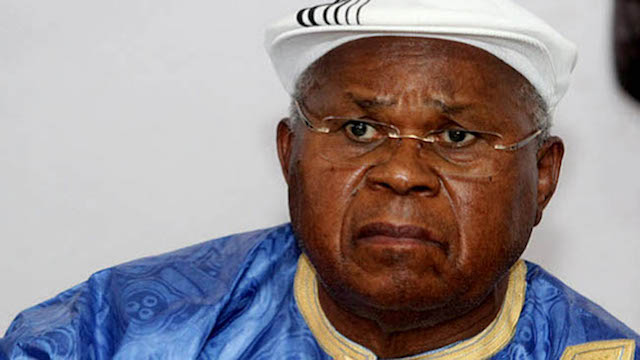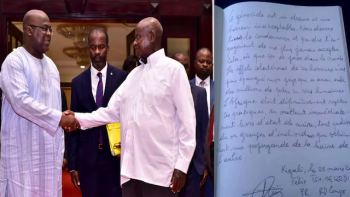Etienne Tshisekedi, the veteran Democratic Republic of Congo (DRC)'s opposition leader, has died in Brussels, Belgium, on Wednesday, February 1, 2017. He was 84 years old.
The undisputed long-term leader of the opposition political party Union for Democracy and Social Progress (UDPS) and the Luba ethnic group, he served as Prime Minister of the country, hen called Zaire, on three brief occasions: in 1991, 1992–1993, and 1997, in the government of the late dictator Mobutu Sese Seko Kuku Ngbendu Wa Za Banga.
A graduate of the University of Luvanium, Belgium, Etienne Tshisekedi, affectionally called the "Lion of Limete", after his residential area in the capital Kinshasa, stood up to Mobutu, one of the few politicians who dared to challenge the dictator, along with the then rebel leader Laurent Desire Kabila.
When Mobutu Sese Seko was overthrown by Rwanda, Uganda, Angola, Namibia, Tanzania, Zimbabwe and other African forces, Laurent Desire Kabila took power
in 1997, followed by his son, Joseph Kabila, upon his assassination in 2001.
Etienne Tshisekedi has been in opposition since. He was set to lead the transitional council under the deal reached on December 31, 2016 (see here). The deal provides for Joseph Kabila to leave power in 2017, following democratic elections..
His death deprives the opposition of its principal, though controversial, leader. Some oppositions leaders contacted by AfroAmerica Network upon learning of the death of Etienne Tshisekedi, have criticized him of not having been able to unify the opposition, and instead sought to be at the helm at all costs, dismissing any idea of consensus among opposition parties, if he was not allowed absolute power. They pointed to his refusal to agree to a coalition during the 2006 and 2011 presidential elections, which, according the oppositions leaders led to the victory of Joseph Kabila. His son, Felix Tshisekedi, is considered the leading contender to the post of prime minister in the upcoming power-sharing government.
His death may complicate an already confused period in the history of the natural resources rich country, following Joseph Kabila's failure to step down when his constitutional mandate expired on December 19, 2016.
When Congolese civilians learned of his death, they rioted and clashed with the police in Limete, Kinshasa. Hundreds of civilians and police troops have died since 2015 in anti- Kabila protests. Since 1996, more than 7 millions civilans have been killed in DRC, in civil wars, crimes against humanity, genocide and civilian protests. According to the 2010 UN Mapping Report and reports from several non government organizations and observers, from the invasion of Rwandan General Kagame's troops have massacred more that 5 millions Congolese civilians, crimes that the United Nations has qualified as in crimes against humanity and genocide. This background of civil wars, mass murders, and dictatorship have elevated the status of Etienne Tshisekedi as the savior of the DRC's people. Now that he has passed away, oppositions leaders are expected to try to fill the void he has left.

















